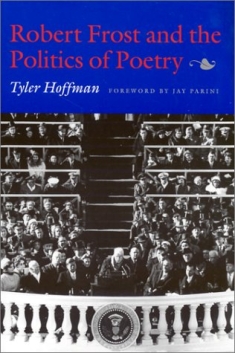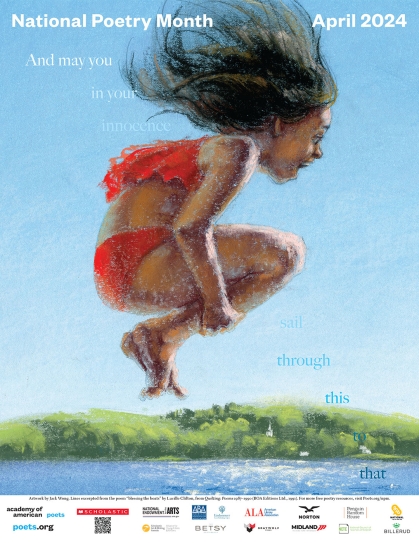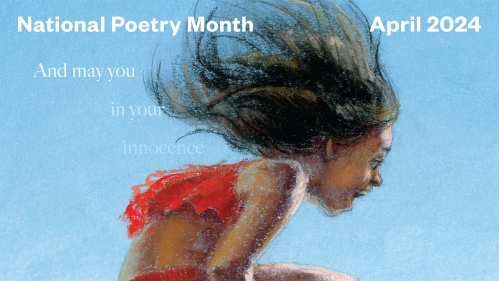English professor shares passion for poetry as National Poetry Month approaches
The iconic American poet Robert Frost claimed, “Poetry is what gets lost in translation.” Yet, many look toward poetry to find or create meaning. For lifelong lovers of verse or newcomers to the art, National Poetry Month is a time to celebrate the integral role of poets in American culture and a reminder that poetry matters.
Founded in 1996 by the Academy of American Poets, National Poetry Month helps to highlight poetry and its place in America. Throughout April, there will be events to celebrate poets and poetry across the country. “Any occasion to celebrate poetry is terrific,” said Professor Tyler Hoffman, chair of the Department of English and Communication at Rutgers University–Camden College of Arts and Sciences. Hoffman has written several books on poetry.

Growing up, Hoffman was always fascinated with the intricacies of poetic forms. By high school, he was regularly reading and writing poetry, relishing the play of language, fitness of words, rhythms, and interplay of line and sentence. The demands of versification, for him, were exciting. Later, while earning his bachelor of arts in English at Dartmouth College, Hoffman became particularly interested in poetry from, and about, the New England region.
As a writing genre, Hoffman explains, poetry is many thousands of years old and tells stories about people and their conditions over time. It gives readers (and listeners) a window into history and culture, as well as human subjectivity as it has evolved—and as it has remained the same.
Hoffman finds it particularly satisfying that lyrical poems come to a resolution, but do not always end in certainty. Moreover, he finds great satisfaction in “well-wrought rhymes.” “The beat of a meter is in some ways in sync with our body’s rhythms,” Hoffman said.

Robert Frost, the former poet laureate and the subject of Hoffman’s first book, “Robert Frost and the Politics of Poetry,” remains a personal favorite because of the directness and disarming simplicity of Frost’s poetry.
On March 26—Frost’s 150th birthday—Hoffman will speak at Dartmouth, his alma mater and where Frost was also briefly a student. Hoffman will address Frost’s life and legacy in a talk entitled “Robert Frost’s America.”
Another great focus of Hoffman’s scholarly work is Walt Whitman, who lived in Camden from 1873 until his death in 1892. Hoffman is currently working on a book concerning Whitman’s later writings. Other American poets Hoffman admires and has written about include Emily Dickinson, William Carlos Williams, and Elizabeth Bishop.
But more than studying poets, Hoffman encourages his students to write their own poetry. He teaches a course called “How to Write a Poem” that allows students to try out different forms and styles as they write original works. “I always hope my students gain an appreciation of the craft of poetry,” Hoffman said.
Hoffman also hopes to imbue his students with a love of poetry performance. His book “American Poetry in Performance: From Walt Whitman to Hip Hop” aims to recover a poetry tradition in the United States that was essentially populist and composed to be recited. “I am interested in students hearing a poem they’ve written in new and different ways when it is spoken out loud,” Hoffman said.
Hoffman’s books give readers an in-depth analysis of poems—some of which they may know, and some they will not be familiar with—and situate them in a historical and cultural context that makes sense of what the poets are saying. He adds that poetry can also have lasting long-term benefits for students regardless of their disciplines and prospective careers. “The benefit is that by reading and trying to unpack poetry—some of which can be challenging to understand right away—you can sharpen your critical thinking skills,” Hoffman said.
Hoffman is also author of the book “Teaching with the Norton Anthology of Poetry” and co-editor of “‘This Mighty Convulsion’: Whitman and Melville Write the Civil War.”
“There is an amazing world of poetry to discover,” Hoffman said.




